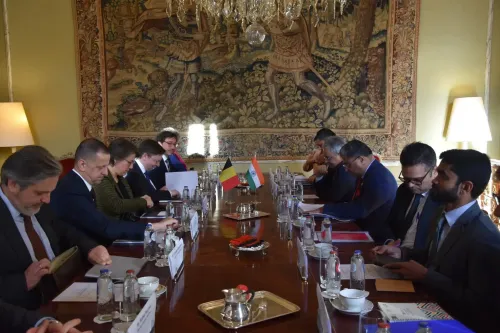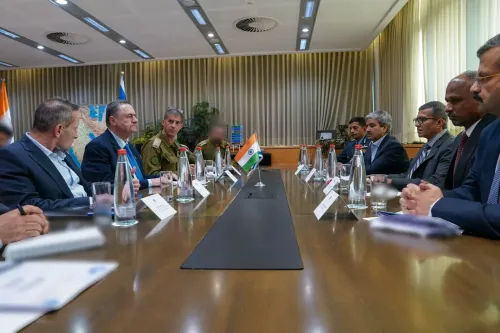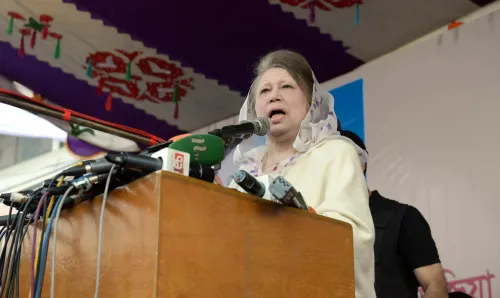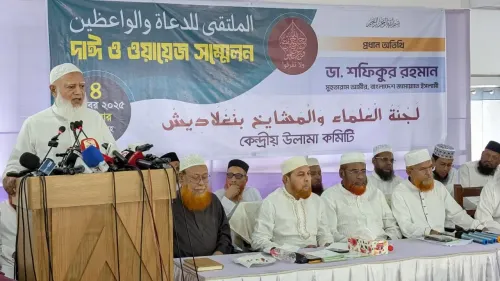Will the Saudi Pact Impact India-Pakistan Relations?
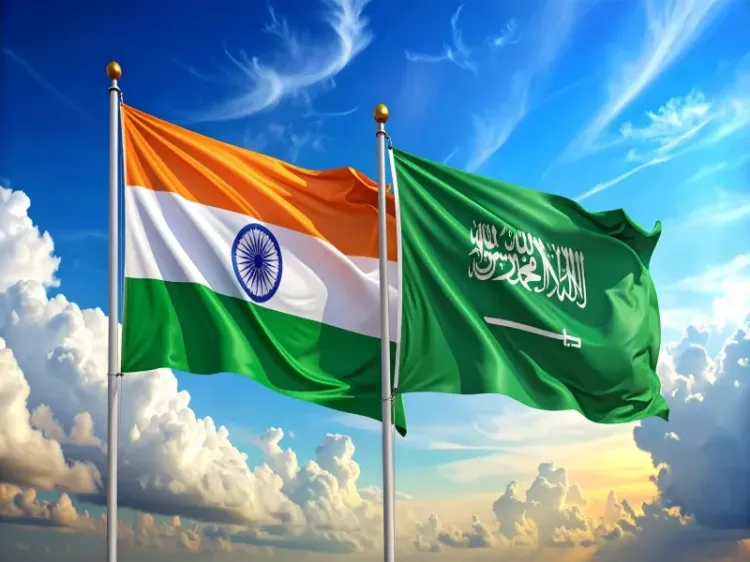
Synopsis
Key Takeaways
- The Strategic Mutual Agreement asserts mutual defense between Pakistan and Saudi Arabia.
- Pakistan's excitement may be tempered by the agreement's lack of specificity regarding threats.
- India's historical stance as a non-aggressor is significant in this context.
- Saudi Arabia prioritizes its robust trade ties with India, valued at $41.88 billion.
- The timing of the agreement is linked to regional tensions, particularly regarding Israel and Hamas.
New Delhi, Sep 18 (NationPress) India is closely monitoring the situation following the signing of The Strategic Mutual Agreement between Pakistan and Saudi Arabia. The pact asserts that any act of aggression against one nation will be viewed as an act against both.
While Pakistan is celebrating this agreement, it must recognize that the deal lacks specificity, as it does not designate any specific country.
Pakistan may attempt to portray that if it faces aggression, Saudi Arabia will deploy aircraft to support Islamabad. The wording of the agreement, which states, "an attack on one equals an attack on both," has led Pakistan to claim a significant diplomatic win.
However, it is essential for Pakistan to remember that India has historically not been the aggressor. Operations like Operation Sindoor were conducted in response to the Pulwama attack, and both the Balakot strike and surgical operations were responses to the Uri terror attacks.
Furthermore, Saudi Arabia is an ally of India and understands that it is Pakistan which has instigated conflicts, prompting India to exercise its right to self-defense.
Despite Pakistan's excitement, this agreement signifies a strategic evolution in Saudi-Pakistani relations. The two nations have maintained an informal defense partnership for decades, and this agreement formalizes their security cooperation. Pakistan may feel a sense of relief that a pact has been established after years of strained relations.
Experts firmly state that Saudi Arabia will not engage in warfare with India over Pakistan. Importantly, Saudi Arabia has clearly separated this pact from its relationship with India, reaffirming that their ties remain strong and are set to continue growing.
Moreover, Saudi Arabia has a vested interest in maintaining trade relations with India, being its fourth-largest trading partner, while India holds the second position for Riyadh. In the fiscal year 2024-25, bilateral trade between the two nations reached $41.88 billion. The stakes are too high for both countries to jeopardize this relationship.
In contrast, Pakistan's bilateral trade with Saudi Arabia ranges between $3-4 billion.
India has responded with caution, stating that this agreement merely formalizes an existing understanding between Saudi Arabia and Pakistan.
While Pakistan may suggest that this agreement sends a message to India, the timing of the pact is critical. It coincides with Israel's recent military actions targeting Hamas leadership in Doha, which has raised concerns in the Arab world regarding potential future strikes backed by the United States.
India and Saudi Arabia have enjoyed longstanding ties, further strengthened under Prime Minister Narendra Modi's leadership. During his visit in April 2025, numerous agreements were signed covering areas such as energy, space, health, sports, and plans for establishing two oil refineries in India.
Thus, while Pakistan may frame this agreement as a signal to India, it is primarily driven by the ongoing situation in Gaza. The Arab nations seek a realignment not aimed at India, but rather against Israel. Therefore, understanding the timing of this agreement is crucial for accurate interpretation.

